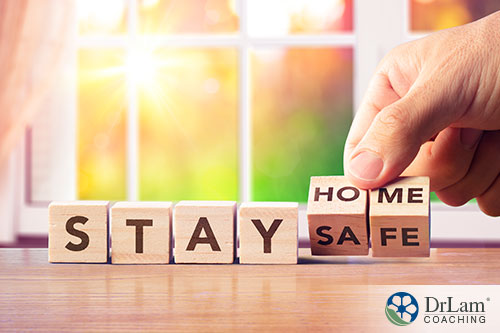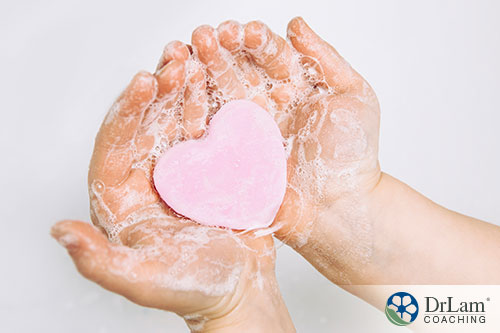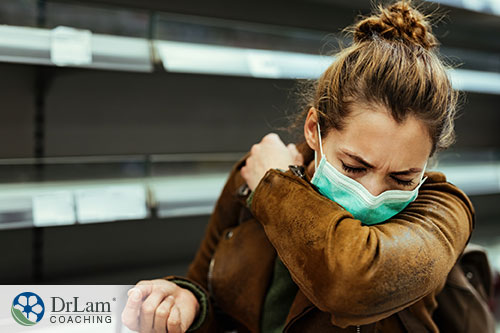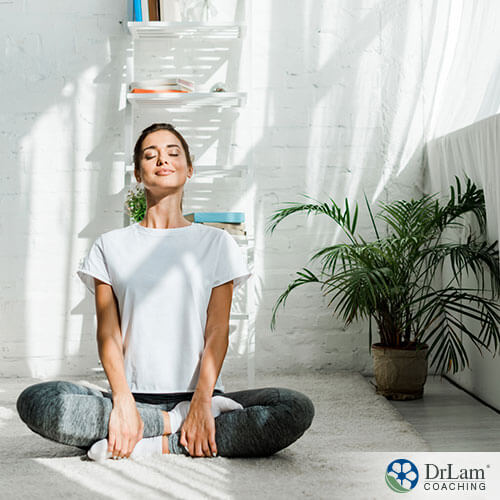 It seems as if the whole world is shutting down. Traveling is limited, and many schools have closed. People are encouraged to stay at home, while many small businesses may see a loss in income and ultimately close. Anxiety levels are on the rise for many especially those people who are in self-isolation or quarantine. And this is due to the rapidly spreading coronavirus. So, what do you do to reduce anxiety during coronavirus isolation? This is a valid question.
It seems as if the whole world is shutting down. Traveling is limited, and many schools have closed. People are encouraged to stay at home, while many small businesses may see a loss in income and ultimately close. Anxiety levels are on the rise for many especially those people who are in self-isolation or quarantine. And this is due to the rapidly spreading coronavirus. So, what do you do to reduce anxiety during coronavirus isolation? This is a valid question.
Talking about isolation, many people choose to self-isolate during this time in order to not get the virus or spread it to their family. Many countries across the world are in lockdown. All non-essential services have been stopped, with only grocery stores and pharmacies, and other essential services, still operating. In other words, many people, stuck in their homes and only allowed to go out for food or medical supplies, only have their families as a company. For those living alone, their only source of companionship is either their pets, their cellphone, or the radio and television. Businesses may close, and jobs may be lost. These factors may increase anxiety.
Anxiety, unfortunately, is one of the leading causes of depression and adrenal fatigue. Fortunately, you can reduce anxiety during coronavirus lockdown or isolation by following a few guidelines.
Anxiety, perceived in your brain, is transferred throughout your body, affecting every organ system and process via chemical messengers in your brain’s Hypothalamic-Pituitary-Adrenal (HPA) axis. This is because anxiety may result in stress. Your body springs into immediate action to combat stress by releasing stress hormones and either shutting down or slowing down certain processes. This immediate action is referred to as the NeuroEndoMetabolic (NEM) stress response and your Neuroaffect system is part of this response system.
In effect, your brain is sending messages throughout your nervous system that in turn tells your different body organs and systems what to do in response to stress. In the long term, this automatic response may cause havoc as various systems no longer function correctly. The brain is such one system and may display symptoms that include depression and other mental health issues.
The rest of your body is not exempt either. A common condition associated with a NEM going into overdrive is adrenal fatigue, a health issue associated with diabetes, heart disease, blood pressure issues, skin conditions, hormonal imbalance, and many more.
If you reduce anxiety during coronavirus isolation you may benefit your adrenal, physical, and mental health.
There are many things you can do to reduce anxiety during coronavirus isolation or even while you are out of the home. It starts by taking the appropriate steps to not get infected and includes what you can do at home when the four walls and anxiety threaten to drive you to do something irresponsible.
 Regularly wash your hands under running water for twenty seconds. Make sure to clean the areas under your nails as well. Washing your hands with soap and water is the greatest tool for getting rid of any viruses. Soap dissolves the lipid layer around a virus’s protein, effectively leaving the protein portion of the individual virus to break up and become useless. In other words, it cannot contaminate you any longer.
Regularly wash your hands under running water for twenty seconds. Make sure to clean the areas under your nails as well. Washing your hands with soap and water is the greatest tool for getting rid of any viruses. Soap dissolves the lipid layer around a virus’s protein, effectively leaving the protein portion of the individual virus to break up and become useless. In other words, it cannot contaminate you any longer.
Washing your hands with warm water at a temperature above 77°F, i.e. 25°C is even better because a virus cannot survive at these temperatures.
Using a hand sanitizer when you are in a pinch is better than nothing. For example, if you need to go to the grocery store, do sanitize your hands if you enter and leave. A hand sanitizer is only effective if it has an alcohol content of 65% and above, however. Anything less is useless. Also, while it may address a virus, it does not necessarily clean your hands off other dirt.
Do remember, though, that regular soap and water is still the best option when dealing with a virus as hand sanitizer can also be very drying to the hands.
If you show any symptoms of being sick, stay at home. By moving around outside the home while sick, you run the risk of infecting other people as well. This includes family and friends, not only strangers.
By going to work, visiting with friends, or going shopping, you expose a larger group of people to your illness which could very well be coronavirus.
If you feel unwell, stay at home!
It is okay to keep yourself up to date about the spread of the virus and about what you can do to stop the spread. But only do so once a day. Constantly listening to the radio or television about the topic will only increase your anxiety levels.
Remember, journalists have a job to do. They tend to blow a situation up to guarantee maximum sales or coverage. In so doing, they tend to increase public fear and anxiety. Basic knowledge of how the coronavirus acts and taking the appropriate counteractive measures like regularly washing your hand with soap and water and keeping your social distance is enough to limit your chances of contracting the virus. Also, know the symptoms of the virus.
The symptoms of the coronavirus are very much like those of the common cold. These include fever, dry cough, and fatigue. Some people may also experience a runny nose, aches and pains, nasal congestion, and diarrhea. In 80% of cases, the symptoms are mild with people recovering without any specialized treatment.
People most at risk of becoming seriously ill are the elderly and those with pre-existing health issues that include heart disease, diabetes, respiratory conditions, and high blood pressure. If relatively young and healthy, the coronavirus should not be a great issue if you become infected. So please, regularly remind yourself of this to reduce anxiety during coronavirus season.
Reduce anxiety during coronavirus isolation by remembering that this too shall pass. Neither the coronavirus nor the isolation will neither stick around forever. But you are an adult, what about your children?
Children are not stupid. They watch your reactions, listen to what you say, and hear the news in the background. Constantly hearing about the coronavirus may frighten them and increase their anxiety levels.
For the sake of your children, do not keep running channels discussing the virus and its spread. Rather tune into another channel that may keep them occupied or that covers a happier topic.
Also, do not keep the truth of the matter hidden from them. Talk to them. Tell them the measures you as a family will take to ensure everyone’s safety and teach them about proper hygiene. Make this time a bonding experience where you and your children grow closer by doing family activities.
 If in a situation where you need to cough or sneeze, do so with good grace. This means either coughing or sneezing into your bent elbow, or a tissue. If using a tissue, please throw it away at once. By doing so, you ensure that the virus does not spread to other people. It also ensures it does not land on your hands and cross-contaminate everything you touch. It is also just plain good manners.
If in a situation where you need to cough or sneeze, do so with good grace. This means either coughing or sneezing into your bent elbow, or a tissue. If using a tissue, please throw it away at once. By doing so, you ensure that the virus does not spread to other people. It also ensures it does not land on your hands and cross-contaminate everything you touch. It is also just plain good manners.
Remember, the virus gets into your system via your nose, eyes, and mouth.
There are many relaxation techniques you could employ to reduce anxiety during coronavirus. Anxiety works in a cycle. You become anxious about something. This increases tension in your body. This increased tension then increases your anxiety levels. To reduce anxiety during coronavirus you need to interrupt this cycle. Various relaxation techniques help with this.
Relaxation Techniques To Consider Include:
Understand that the problem is not the coronavirus but fear. If you have taken the necessary measures to protect yourself and your family, there is nothing more you can do. Fear is the enemy here.
Take the necessary precautions to protect your and your family’s health, stay at home if you feel unwell, and do not spread false information or listen to it. Fear tends to result in people making bad choices. So, keep your perspective.
The virus may have many economic consequences in the future. But right now, at this minute, there is nothing you can do about it. Worry will not help you. You can only correctly deal with a situation once facing it. So, deal with the issues you can deal with, i.e. the health of your family at this minute.
If someone who has previously suffered from an anxiety disorder and the new situation makes it worse, please do consider talking to a healthcare practitioner so that you can deal with the issue.
Dealing with the coronavirus is no laughing matter. Everyone needs to take it seriously. You can, however, reduce anxiety during coronavirus isolation by taking the simple measures described into consideration.
 If you are trying to reduce anxiety during coronavirus isolation, here are a few things you can do to help alleviate the situation.
If you are trying to reduce anxiety during coronavirus isolation, here are a few things you can do to help alleviate the situation.
If you want to know more or need help to reduce anxiety during coronavirus isolation, the team at Dr. Lam Coaching can help. We offer a free** no-obligation phone consultation at +1-626-571-1234 where we will privately discuss your fears and various options. You can also send us a question through our Ask The Doctor system by clicking here.
© Copyright 2020 Michael Lam, M.D. All Rights Reserved.
Yes, it does. Anxiety has a negative effect on adrenal health because it may affect cortisol production. If you reduce anxiety during coronavirus isolation, you may help control your body’s cortisol production and therefore support adrenal health. This is important because adrenal fatigue may increase your risk of infection.
